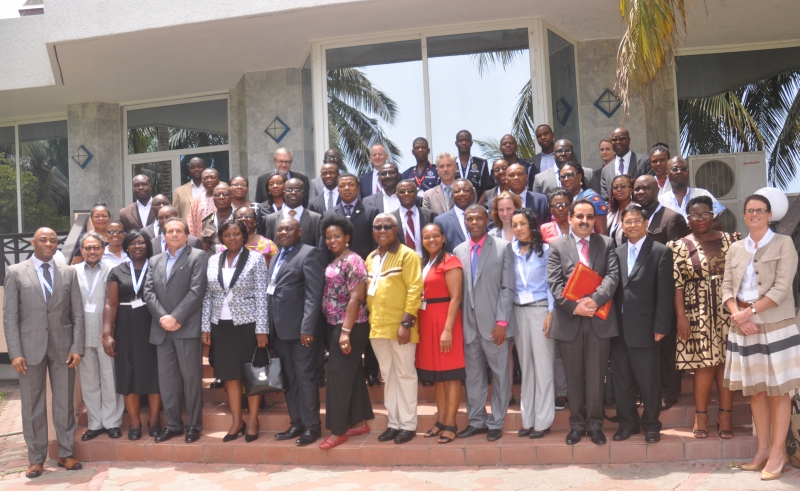Criminalising torture in national laws in sub-Saharan Africa – report now available
The report of the CTI’s regional seminar for governments in sub-Saharan Africa, held in Accra, Ghana, is now available.

Hosted by the Government of Ghana as part of the CTI, the April regional meeting brought together the experiences of sub-Saharan African governments, along with other experts and regional and international organisations, to share their experiences of developing national legislative frameworks to prevent torture and other cruel, inhuman or degrading treatment or punishment. The seminar was held in partnership with the African Committee on the Prevention of Torture in Africa (CPTA) and the Association for the Prevention of Torture (APT).
Fourteen Government representatives participated: Angola, Burkina Faso, Cabo Verde, Comoros, Côte d’Ivoire, Democratic Republic of Congo, Ghana, Gabon, Liberia, Madagascar, Nigeria, Tanzania, Togo and Zambia, while a further four country experiences were reflected by representatives of national human rights institutions or civil society from Kenya, Namibia, South Africa (via a written contribution) and Uganda. The participants benefited from hearing from experiences from both civil and common law legal traditions, drawn from Anglophone, Francophone and Lusophone countries.
Dialogue was also informed by the APT-CTI Anti-Torture Law Guide published in March 2016 in English, French and Portuguese, as a practical tool to assist States in the adoption or revision of anti-torture legislation at the national level by providing good practice examples from all regions of the world including Africa.
The United Nations Convention against Torture and Other Cruel Inhuman and Degrading Treatment and Punishment (UNCAT, or Convention) has received near-universal acceptance in sub-Saharan Africa: only seven States are not yet party. Of these, three have signed the Convention. Moreover, Africa has been leading the development of useful guidelines on torture prevention, most notably the African Commission on Human and Peoples’ Rights’ Robben Island Guidelines, dealing with guidelines and measures for the prohibition and prevention of torture.
A number of African States have taken the required step to enact anti-torture legislation or have pending anti-torture bills before their national parliaments. The meeting heard many good practices in relation to anti-torture legislation, either in the form of amending existing laws (such as penal codes) or in adopting stand-alone anti-torture legislation. Even in the absence of national laws, a number of national constitutions prohibit torture and cruel, inhuman and degrading treatment or punishment, although it was acknowledged that enabling legislation is an important component of realising such constitutional guarantees.
The meeting also heard a number of key challenges for States in relation to the drafting of laws, the content and scope of such laws, and the processes relating to developing and adopting anti-torture legislation or amending existing laws. These challenges included decisions regarding whether or how to define cruel, inhuman or degrading treatment or punishment in national criminal law, sentencing guidelines and the paucity of personnel skilled in legal drafting. Some governments noted that immunity and amnesties for torture, or statutes of limitations, were still in place. Good experiences in transparent and multi-stakeholder processes were shared.
While the seminar focused specifically on developing national legislative frameworks, participants emphasised that, even in the absence of legislation, there were many policy and practical ways in which torture could be prevented.
The full report of the regional meeting can be read here in English, French and Portuguese.
The programme of the seminar is available here.
Following the event, a half-day informal meeting with non-States parties to the UNCAT was held on 7 April 2016, in which benefits and challenges around ratification of the UNCAT were discussed.

